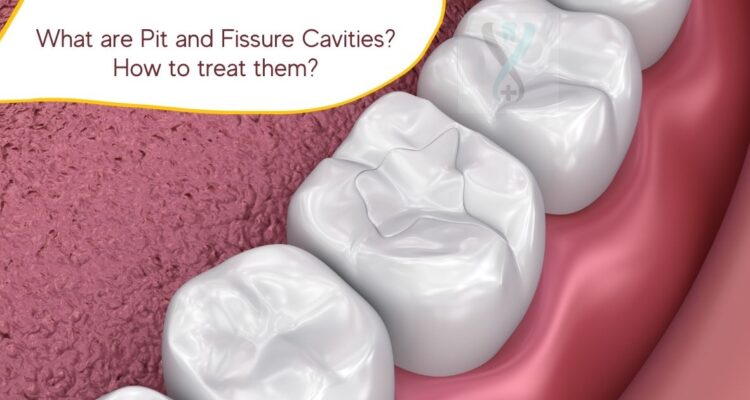Pit and Fissure are groovy lines in our molar teeth. A black line running the pits of the molars is nothing but cavities that have developed over time due to the build-up of plaque and the resulting decay. Let us explore more on pits and fissures of our teeth, the cavities that form in them, and ways of treating them in this article.
More about Pits and Fissures
Pits and fissures make up the chewing surfaces of our teeth. They are present in both the premolars and molars. Cavities formed in the molar teeth are deeper than those formed in the premolars.
How Do Cavities in the Pits and Fissures Happen?
While pits and fissures help us to chew the food we eat, they can still be a place where food can get stuck. If the teeth are not brushed, flossed, or rinsed properly, plaque, a bacterial film form on the surface of the pits and fissures of our teeth. As a matter of fact, pits and fissures in the teeth can facilitate the accumulation of food particles if not cleaned regularly. Sometimes despite the fact that the teeth are cleaned diligently, minor food particles can still get stuck in these grooves because a toothbrush is difficult to reach these areas. So food and plaque remain in place in these pits and fissures leading to cavity formation. We all know that when bacteria in the plaque feed on sugars from foods and drinks, it produces acid. This acid produced attacks the enamel layer of the teeth. As time goes by and if not subject to a proper dental cleaning the enamel ultimately wears down and tooth decay can set in. The problem is starker in children as they eat more sugary candies and chocolates.
How to Prevent Cavities in the Pits and Fissures?
Brushing our teeth twice a day for at least two minutes can definitely help. After having a large meal or after having anything sugary, whether as solid food or drink, brushing, flossing and proper rinsing are recommended. While brushing, it is recommended to pay attention to the surfaces of every single tooth, particularly the molars and premolars where the pits and fissures are present in abundance.
A regular dental visit helps keep the plaque under check because your dentist will do basic scaling or deep scaling based on the level of plaque build-up. As a preventive measure, dental sealants are applied to the teeth, particularly on the premolars and molars. Dental sealants are a protective coating that fills the pits and fissures in the teeth, prevents food from getting stuck, and arrests any plaque build-up. These dental sealants are usually applied to children’s teeth as soon as their permanent teeth erupt by the dentist. Adults can also benefit from dental sealants.
How to Treat Cavities in the Pits and Fissures?
As said earlier, if the plaque build-up is mild, basic scaling of teeth is done by the dentist. If it is deeper, deep scaling is done. If the cavity reaches the dentin and the cavities are smaller and medium in size, dental restorations like fillings and composites are done. On the other hand, if the cavity has reached the dentin and they are larger in size, crowns are fixed after proper scaling and cleaning. Crowns are given only when the dentist has asserted that the tooth decay has reached a level of compromising the tooth’s structure.
Though pit and fissure cavities are harder to reach, good oral hygiene along with a regular dental visit, once at least every 5-6 months can keep them under check.




